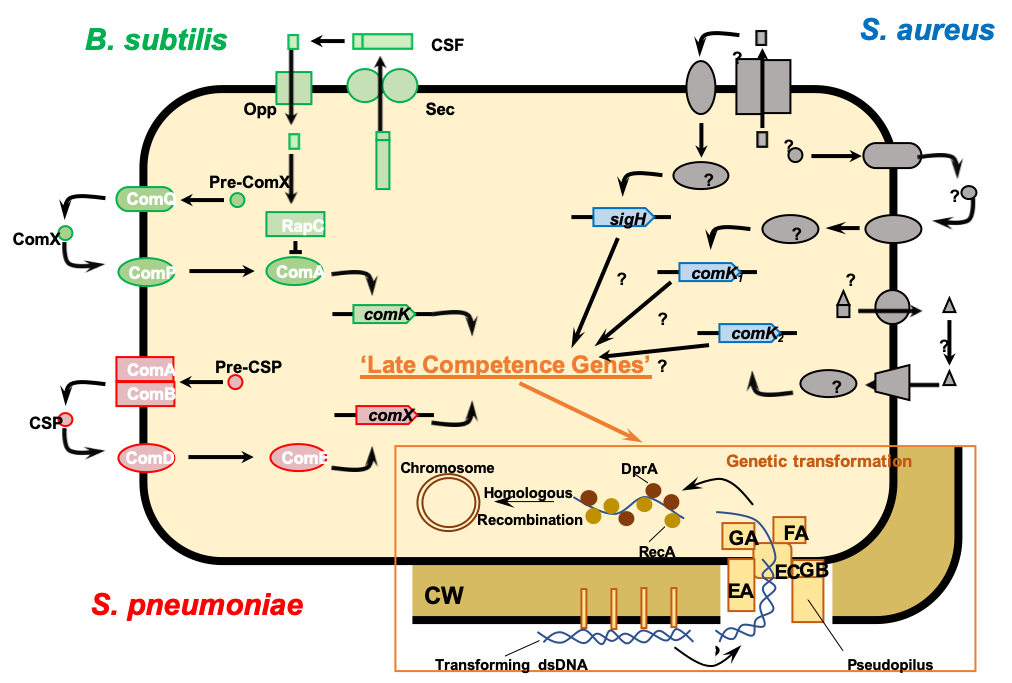Horizontal Gene Transfer
in pathogenic bacteria:
from old to new model organisms
During evolution, the ability of bacteria to adapt to evolving environments often resulted from the acquisition of new genes, and therefore new functions, through Horizontal Gene Transfer (HGT). HGT, defined as the transmission of genetic material between organisms that are not in a parent-offspring relationship, is an important means by which bacteria ensure genomic plasticity and acquisition of antibiotic resistance.
HGT may occur via three main mechanisms: transduction, conjugation and genetic transformation. The latter mechanism ensures the internalization and homologous recombination within the chromosome of high molecular-weight exogenous DNA. Genetic transformation requires that bacterial cells enter a differentiated state called competence that has been studied in a number of different bacteria, particularly Bacillus subtilis and Streptococcus pneumoniae. Interestingly, new bacteria displaying such aptitude are often discovered, and one of the latest is the human Gram-positive pathogen Staphylococcus aureus.
Areas of active research in this field include the mechanisms of DNA transport and processing, regulation of competence and evolutionary function of competence (genome plasticity, antibiotic resistance spreading…). In our young team, we investigate all these aspects in different historical or new model organisms.
In B. subtilis, our aim will be to complete the important knowledge accumulated over the years. Our priorities are to identify and characterize new actors involved in competence regulation and DNA binding/transport during transformation. All this knowledge will provide the ideal framework to study new pathogenic model organisms (project 1).
Among the new model organisms, we will first focus on S. aureus, for which a lot remains to be discovered (project 2). However, the limited information available already stresses the importance of studying this physiological differentiation in S. aureus.
Finally, we plan to extend these investigations in order to control and engineer genetic transformation in non-naturally transformable bacteria, with industrial and/or medical interest. The recent progress in synthetic biology should allow us to transfer and express, in these bacteria, all the genes necessary to ensure natural transformation (project 3).

team

Nicolas MIROUZE
Group Leader
Researcher
Yolande HAUCK
Engineer - CNRS
Pierre POIRETTE
M2 intern
Latest publications
For all the publications of the Team click on the button below.
External funding


